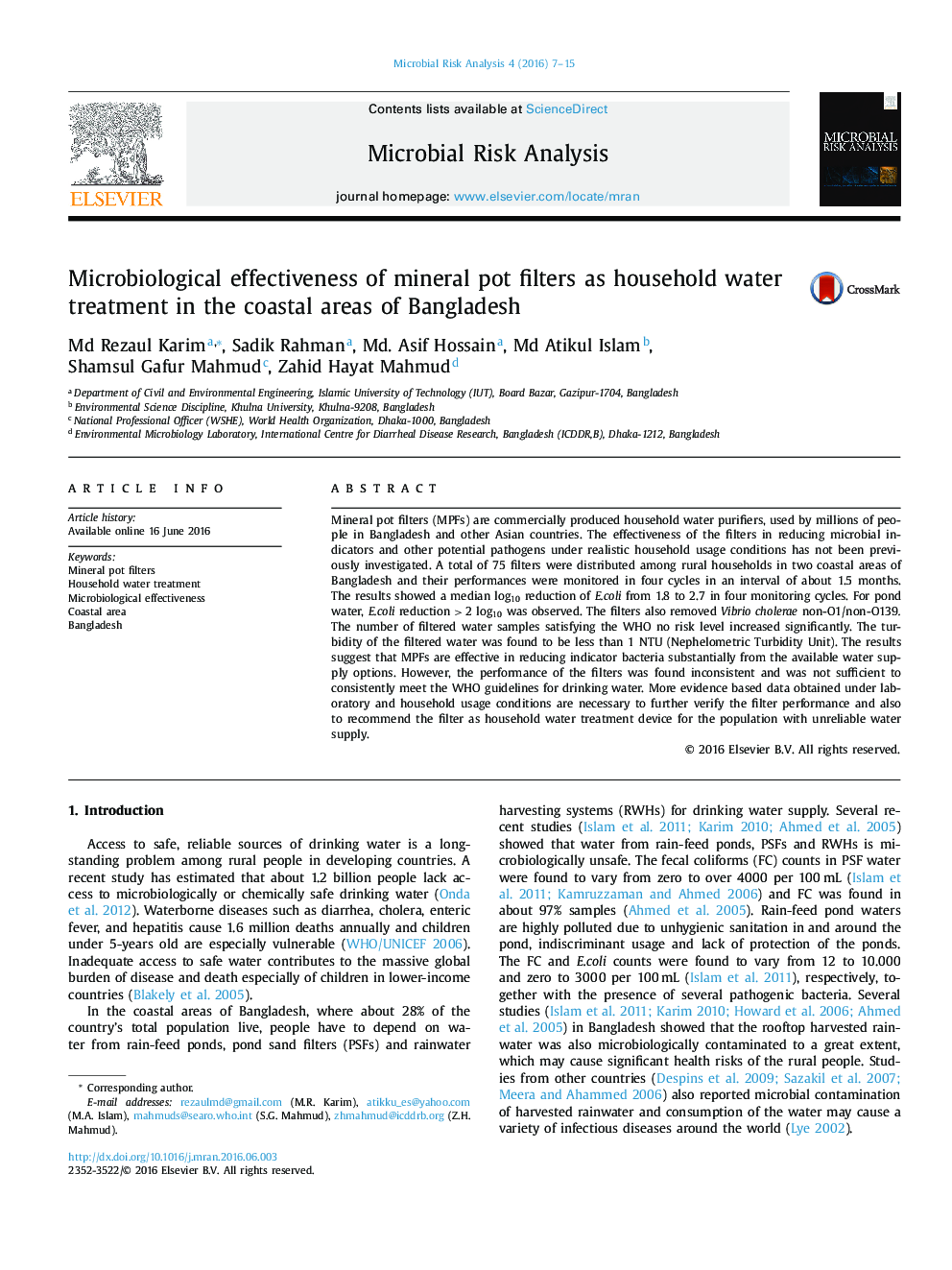| Article ID | Journal | Published Year | Pages | File Type |
|---|---|---|---|---|
| 5739689 | Microbial Risk Analysis | 2016 | 9 Pages |
Mineral pot filters (MPFs) are commercially produced household water purifiers, used by millions of people in Bangladesh and other Asian countries. The effectiveness of the filters in reducing microbial indicators and other potential pathogens under realistic household usage conditions has not been previously investigated. A total of 75 filters were distributed among rural households in two coastal areas of Bangladesh and their performances were monitored in four cycles in an interval of about 1.5 months. The results showed a median log10 reduction of E.coli from 1.8 to 2.7 in four monitoring cycles. For pond water, E.coli reduction >Â 2 log10 was observed. The filters also removed Vibrio cholerae non-O1/non-O139. The number of filtered water samples satisfying the WHO no risk level increased significantly. The turbidity of the filtered water was found to be less than 1 NTU (Nephelometric Turbidity Unit). The results suggest that MPFs are effective in reducing indicator bacteria substantially from the available water supply options. However, the performance of the filters was found inconsistent and was not sufficient to consistently meet the WHO guidelines for drinking water. More evidence based data obtained under laboratory and household usage conditions are necessary to further verify the filter performance and also to recommend the filter as household water treatment device for the population with unreliable water supply.
